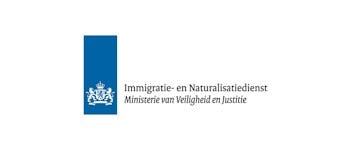Challenge: from 'paper tigers' to concrete actions
Earlier SPP initiatives undertaken by the Dutch Immigration and Naturalization Service (IND) ended in 'paper tigers’, in which discussions on an SPP were limited to highly technical and abstract outlines. As a result, the why, how, and intended effects of an SPP failed to respond adequately to the wishes and needs of the departments, staff and employees. The challenge in this project was to translate the desired strategic organizational development into an appropriate, stable, and agile workforce, and to identify the steps needed to get there.
Solution: a periodic systematic approach
Through the further development of practical and value-adding processes in collaboration with the departments, the SPP was put back on the map as a strategic instrument. A clear approach based on the aspects of Lean, Leadership, and Learning was used to gradually redesign and validate the processes, end products, roles and responsibilities with the departments.
Decisive steps were taken in two stages with the tactical HR managers and the triangle of executive secretary, business controller and HR account advisor, which led to the SPP being accepted well and used daily. The departments jointly built a long-term SPP. A short-term SPP was also designed that can be implemented independently by the departments, and in which HR can play a facilitating and supporting role.
Result: a clear and supported SPP process
A clear and manageable SPP process now exists that is supported and led by the entire hierarchical line, where the members of the HR tactical table and the departments have jointly experienced the process. The various stakeholders are familiar with the SPP cycle and their roles and responsibilities within it. They ask each other the right questions and can specifically indicate the consequences of future developments. Responsible administration and management of the SPP has been transformed from a checklist to a periodic, systematic analysis of a forward-looking workforce.
Concrete results:
- qualitative long-term year+3 SPP
- quantitative short-term SPP
- specifically developed SPP Dashboard
- Planning & Control calendar
- Action plan for each departments
Distinctive character: creating responsibility
The distinctive character lay in making the departments responsible for the SPP through short, clearly defined activities. Personal guidance through interviews, data analysis and criticism sessions of the old SPP cycle created the required sense of urgency and necessity among the stakeholders.


